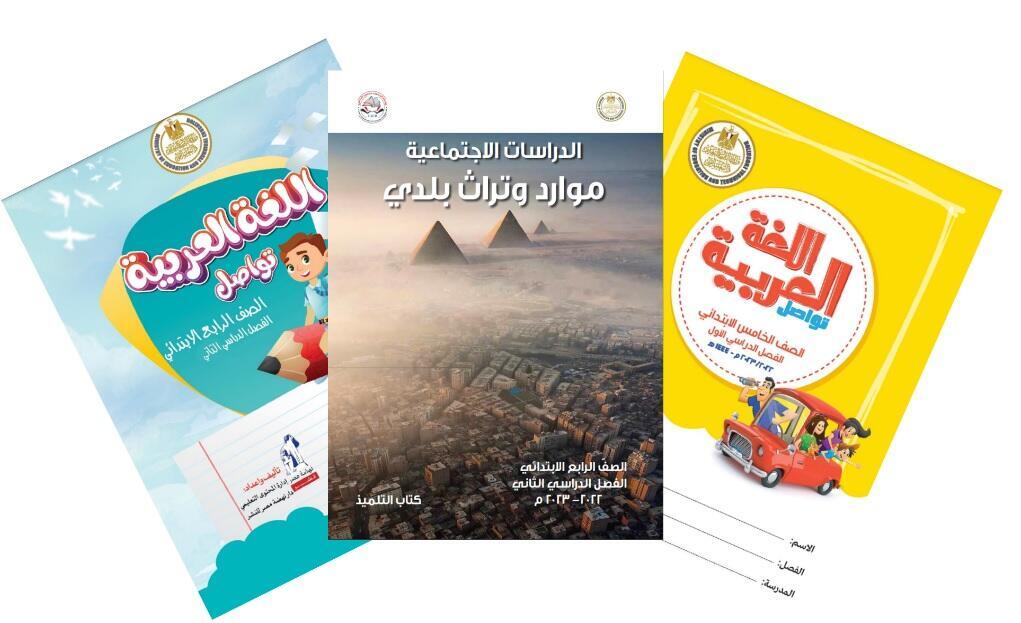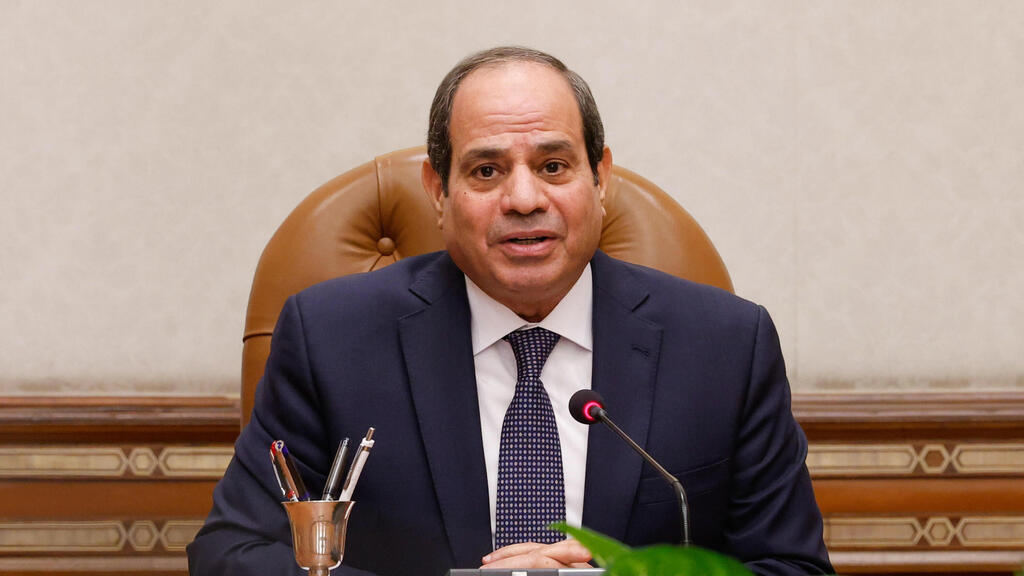A newly released study showed Egypt was successful in removing antisemitism and other hatred from its school books, The Institute for Monitoring Peace and Cultural Tolerance in School Education (IMPACT-se) found. The research and policy institute that analyzes curricula around the world through UNESCO-defined standards, has released its second full report on the Egyptian curriculum, from its London office.
More stories:
This latest IMPACT-se report evaluated 271 textbooks from the Egyptian national curricula, published between 2018 and 2023. The study focuses on the Arabic language, Islamic and Christian religious education, social studies, values and respect for others, history, geography, philosophy, and more. Egypt has the largest education system in the Middle East and North Africa, with 25 million children currently enrolled in its schools - the largest in the Arab world.
"Our findings show major improvements in attitudes toward Jews and Judaism in the revised textbooks, part of the year-by-year reform of the Egyptian national curriculum between 2018-2030 across all grades, which has already reached Grade 5," IMPACT-se said.
"Promisingly, elementary school textbooks rewritten since 2021 do not include traditional, harmful antisemitic stereotypes such as attributing evil deeds and negative traits like disloyalty, fraud, greediness, and violation of contracts to Jewish people. These were replaced with values of tolerance and coexistence between Islam and Judaism, highlighting common ground such as Islam's recognition of the Torah, and permission for Muslims to eat Kosher food."
While the curriculum is lacking in information about Jewish history in general, and the rich history of Jews as Egyptians over two millennia in particular, there are stories featuring the Prophet Moses.
"The year-by-year nature of the reform means that students are exposed to antisemitic prejudices in both religious and historical contexts, in higher-grade textbook editions as yet not included in ongoing reforms. This includes blaming Jews for causing antisemitism in Europe; describing them as an ethnic group engaged in finance; and a Jewish collective hatred of Muslims. It is very notable that in one case, antisemitic tropes featured in a multiple-choice exercise about the reason why Jews were not allowed to live in Jerusalem after it was conquered by ‘Umar, including as options their love of money, their treachery, and betrayal, were removed." the study said.
According to the study, the Holocaust is not taught, although a history textbook blames the Zionists for exploiting the “claim” that six million Jews were “killed or burned by the Nazis” in order to justify the immigration of Jews to Palestine at the expense of the Arabs living there.
"New elementary school Christian Education textbooks acknowledge Jewish religious connection to the historical land of Israel, emphasized through the use of such terms as “the land of Israel,” and “the Jewish land,” to designate the territory of the Roman province of Judaea during the early days of Christianity. However, they blame Jews for the Crucifixion of Jesus.
"The existence of a Jewish temple built by King Solomon in Jerusalem, referred to explicitly by the names Israel and Urshalim (Jerusalem, as opposed to the Islamic name al-Quds or Bayt al-Maqdis) is acknowledged. Higher-grade textbooks also feature positive examples of Jews and Christians. Judaism and Christianity, alongside Islam, are described as the main source of human rights; students are taught that marriage between Muslim men and Christian or Jewish women is the “greatest form” of co-existence with the “Other”; and the Ten Commandments are seen as “clear evidence of human rights and freedoms.”
The study notes that Egyptian textbooks reveal a contradictory approach toward Israel. Egyptian students learn about the benefits of the 1979 Egypt-Israeli peace agreement, with significant positive changes made compared to textbooks from the Mubarak era. A greater emphasis is now put on the legitimacy of Israel as a peace partner and the economic value of peace.
Students are required to memorize the provisions of the peace treaty, and describe the “advantages of peace for Egypt and the Arab states.” A photograph of the peace treaty signing at the White House is shown for the first time. Passages such as “recognition of the sovereignty of each side in the conflict over its territory” were changed to “respect by each side of the other’s sovereignty and independence,” and establishing “normal relations” between the two countries, was changed to establishing “friendly relations.”
The study nonetheless found that Israel is often presented as an illegitimate “Zionist entity,” supported by Western colonist forces and driven by the ongoing ambition to expand at the expense of the Palestinians and the Arabs. The liberation of Palestine and Jerusalem from Israeli occupation is shown not only as a political goal but as an Islamic duty. Maps consistently avoid calling the State of Israel by its name, referring instead to “Palestine.”
"The Egyptian government under President Abdel Fattah el-Sisi has fulfilled its promise to reform its school curriculum," says IMPACT-se CEO Marcus Sheff. Egypt has the largest education system in the Middle East and North Africa, with 25 million children enrolled in schools, and so this process of removing antisemitism and other hatred from school textbooks is a significant contribution to the emergence of a tolerant Egyptian society and region."
Overall, the reformed curriculum shows a highly positive change. Textbooks present a love for peace as a general concept, a national ethos and an Islamic value, supported by Qur’anic verses and traditions. They emphasize the importance of openness to other cultures. The Christian “Other” is consistently depicted positively, and is treated with dignity and respect. Christian freedom of worship is cherished, and the social unity of Christians and Muslims is emphasized. Newly introduced textbooks are void of incitement to violence, extremism, and hatred; however, negative examples and prejudices remain in unrevised higher-grade textbook editions.
The revolutions of January 2011 and June 2013 are portrayed in a positive light, as popular attempts to bring freedom, democracy, and liberal values. The role of the army is positively depicted, as an honest broker which came to the rescue of the people. At the same time, students are encouraged to maintain political stability, with political protests and revolutionary actions discouraged. Textbooks reflect the Egyptian concept of human rights as mostly socioeconomic, rather than political. The Muslim Brotherhood is not mentioned.
Contemporary Egyptian foreign policy is framed as that of friendly and cooperative relations: there is a special emphasis on economic ties with countries including the US, India, Germany, Brazil, and Nigeria. Regional disputes with Iran, Turkey, Qatar, and Ethiopia are not discussed. The legacy of colonialism focuses on oppressive external enemies, such as the French conquest under Napoleon and the violence of British occupation, who are confronted by Egyptian defenders of the homeland. A textbook criticizes Western capitalism, claiming that the division of the Arab homeland by colonial forces was “artificial” and caused political unrest, whereas another uses a photo of New York City to present it as a role model for the Egyptian economy.
Generally, the curriculum promotes gender equality and opposes discrimination or oppression based on gender. Women are encouraged to participate in public life, and the curriculum is committed to their independence and free will. Lessons feature female historical figures as prominent role models, and respect for women’s rights and gender equality are taught as Islamic, Christian, Arab, and Egyptian values. Traditional customs such as early marriage are recognized as obstacles to this aspiration. Female genital mutilation is, on the whole, delegitimized. However, exceptions to this progressive approach include discrimination of women on religious issues and property rights and calls for women to obey their husbands and dress modestly.
Students learn about major domestic challenges in textbooks. Lessons educate students about demographic challenges in Egypt, such as population density, and encourage them to seek solutions – both as a societal need and as permissible under religious law. Textbooks highlight the importance of preserving the environment, and position Egypt as a leading global and regional actor in addressing climate change.



